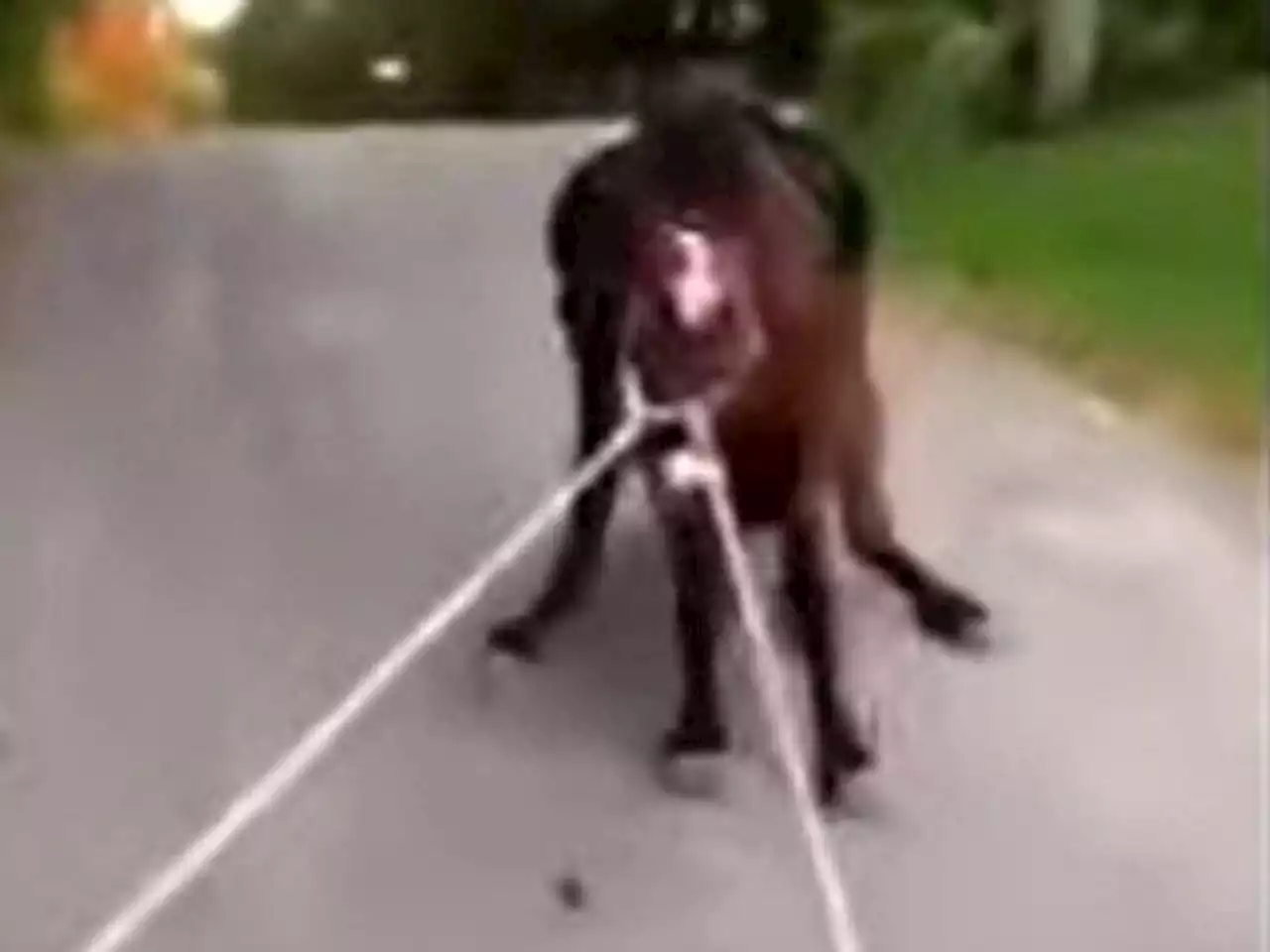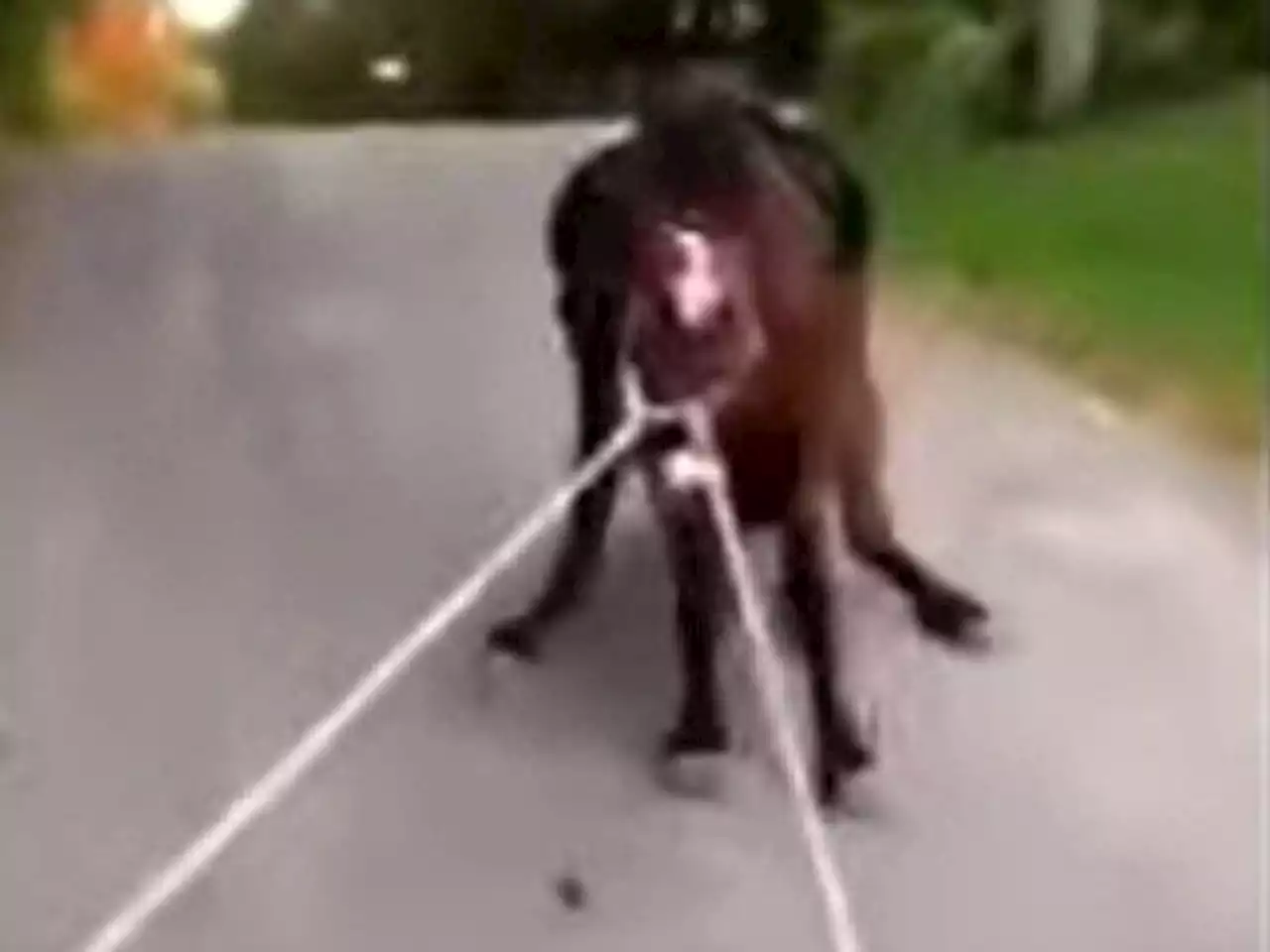WARMINGTON: B'nai Brith Canada says Kanye West's 'love' of Hitler and Nazi's 'harmful and offensive' Via joe_warmington
Kanye West is not the only one with free speech. Disgusted, Toronto’s Jewish community is pushing back on his vile attack.As the Canadian national soccer teams head to their respective FIFA World Cups, Derek Van Diest is on the scene to cover all the action. Expect expert insights and analysis in your inbox daily throughout the tournaments, and weekly on Thursdays for the rest of the season.By clicking on the sign up button you consent to receive the above newsletter from Postmedia Network Inc.
“Every human being has something of value that they brought to the table, especially Hitler,” added West, who also professed his “love” for the Nazis.Article content
Canada Latest News, Canada Headlines
Similar News:You can also read news stories similar to this one that we have collected from other news sources.
 WARMINGTON: Where is dragged horse in shocking online video?BAILIEBORO – We are trying to find Ezra! Or is it Quinn? We do not know the registered name of the horse, which was shown in a video with ropes around…
WARMINGTON: Where is dragged horse in shocking online video?BAILIEBORO – We are trying to find Ezra! Or is it Quinn? We do not know the registered name of the horse, which was shown in a video with ropes around…
Read more »
 WARMINGTON: Where is dragged horse in shocking online video?BAILIEBORO – We are trying to find Ezra! Or is it Quinn? We do not know the registered name of the horse, which was shown in a video with ropes around…
WARMINGTON: Where is dragged horse in shocking online video?BAILIEBORO – We are trying to find Ezra! Or is it Quinn? We do not know the registered name of the horse, which was shown in a video with ropes around…
Read more »
 Everything Coming to Netflix Canada in December 2022 | Elle CanadaFrom a new romantic period drama starring EmmaCorrin to EmilyinParis Season 3, here's what is coming to netflix Canada this month.
Everything Coming to Netflix Canada in December 2022 | Elle CanadaFrom a new romantic period drama starring EmmaCorrin to EmilyinParis Season 3, here's what is coming to netflix Canada this month.
Read more »
 Canada-Morocco: Canada fans look forward to next World Cup after loss in final matchCanadian soccer fans were left disappointed with the national team's 2-1 loss to Morocco on Thursday, but they were also filled with optimism about the team's chances in World Cup 2026, which Canada will co-host.
Canada-Morocco: Canada fans look forward to next World Cup after loss in final matchCanadian soccer fans were left disappointed with the national team's 2-1 loss to Morocco on Thursday, but they were also filled with optimism about the team's chances in World Cup 2026, which Canada will co-host.
Read more »
 'I like Hitler': Kanye West doubles down on hate speech on Alex Jones' Infowars showAs he continues his rapid descent into madness, Kanye West went on new anti\u002DSemitic rant during an appearance with Infowars host Alex Jones.
'I like Hitler': Kanye West doubles down on hate speech on Alex Jones' Infowars showAs he continues his rapid descent into madness, Kanye West went on new anti\u002DSemitic rant during an appearance with Infowars host Alex Jones.
Read more »
 It's time to re-establish Canada's leadership in ecosystem restorationWe are now two years into the United Nations Decade on Ecosystem Restoration, which was launched in 2020 to urge the world to take action to slow, halt, and even reverse nature loss. This UN call to action challenges the nearly 200 participating countries to embrace nature-based solutions for climate mitigation, reverse biodiversity declines, and support human livelihoods, all to shape a more sustainable society. Today, countries are still grappling with how to achieve impactful and lasting ecosystem restoration results. Canada can lead this global effort on our journey to meet conservation commitments, but only through collaboration, investment, and cross-sector engagement. This is a familiar position for Canada. We were at the forefront of global restoration efforts in the 1990s, when societal consensus developed around the need to reclaim and restore degraded lands. Over time, restoration efforts have expanded to address the challenges of urbanization, land conversion, and invasive species. These efforts have even filtered down to the grassroots level in Canada to grow programs like pollinator gardens in schoolyards and community invasive species removal initiatives. Still, the looming threats of accelerating climate change and biodiversity loss demand we do more restoration, faster, at a much larger scale. Because Canada is still losing ground on ecosystem loss. Lisa McLaughlin is vice-president of conservation policy and planning for the Nature Conservancy of Canada. Photograph courtesy of the Nature Conservancy of Canada The country has lost more than two-thirds of its grasslands—ecosystems that store carbon, filter water, and feed communities. Similarly, southern Ontario’s wetlands have dwindled to less than 30 per cent of their historic land cover, meaning numerous at-risk species have lost their habitats, and some of our communities’ greatest natural buffers against flooding and drought have vanished. These losses can be slowed, halted, and even reversed, b
It's time to re-establish Canada's leadership in ecosystem restorationWe are now two years into the United Nations Decade on Ecosystem Restoration, which was launched in 2020 to urge the world to take action to slow, halt, and even reverse nature loss. This UN call to action challenges the nearly 200 participating countries to embrace nature-based solutions for climate mitigation, reverse biodiversity declines, and support human livelihoods, all to shape a more sustainable society. Today, countries are still grappling with how to achieve impactful and lasting ecosystem restoration results. Canada can lead this global effort on our journey to meet conservation commitments, but only through collaboration, investment, and cross-sector engagement. This is a familiar position for Canada. We were at the forefront of global restoration efforts in the 1990s, when societal consensus developed around the need to reclaim and restore degraded lands. Over time, restoration efforts have expanded to address the challenges of urbanization, land conversion, and invasive species. These efforts have even filtered down to the grassroots level in Canada to grow programs like pollinator gardens in schoolyards and community invasive species removal initiatives. Still, the looming threats of accelerating climate change and biodiversity loss demand we do more restoration, faster, at a much larger scale. Because Canada is still losing ground on ecosystem loss. Lisa McLaughlin is vice-president of conservation policy and planning for the Nature Conservancy of Canada. Photograph courtesy of the Nature Conservancy of Canada The country has lost more than two-thirds of its grasslands—ecosystems that store carbon, filter water, and feed communities. Similarly, southern Ontario’s wetlands have dwindled to less than 30 per cent of their historic land cover, meaning numerous at-risk species have lost their habitats, and some of our communities’ greatest natural buffers against flooding and drought have vanished. These losses can be slowed, halted, and even reversed, b
Read more »
